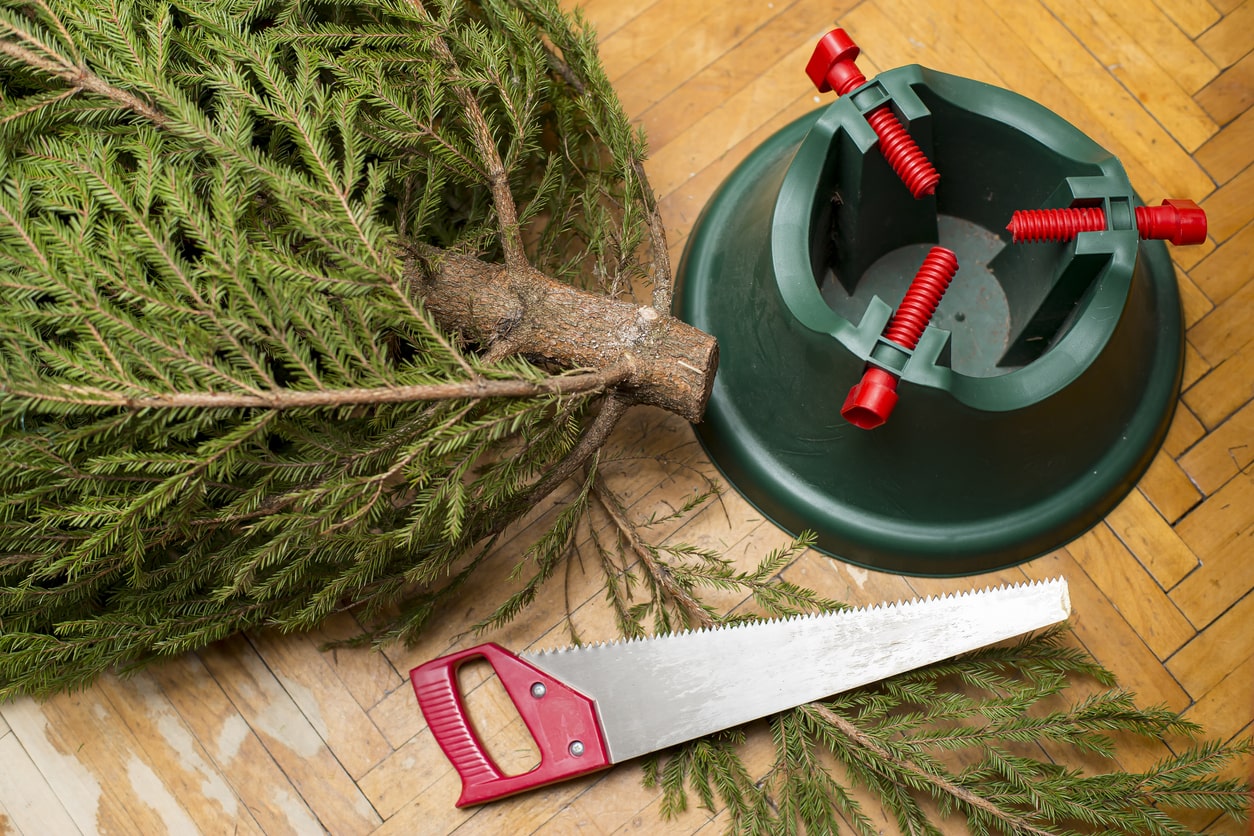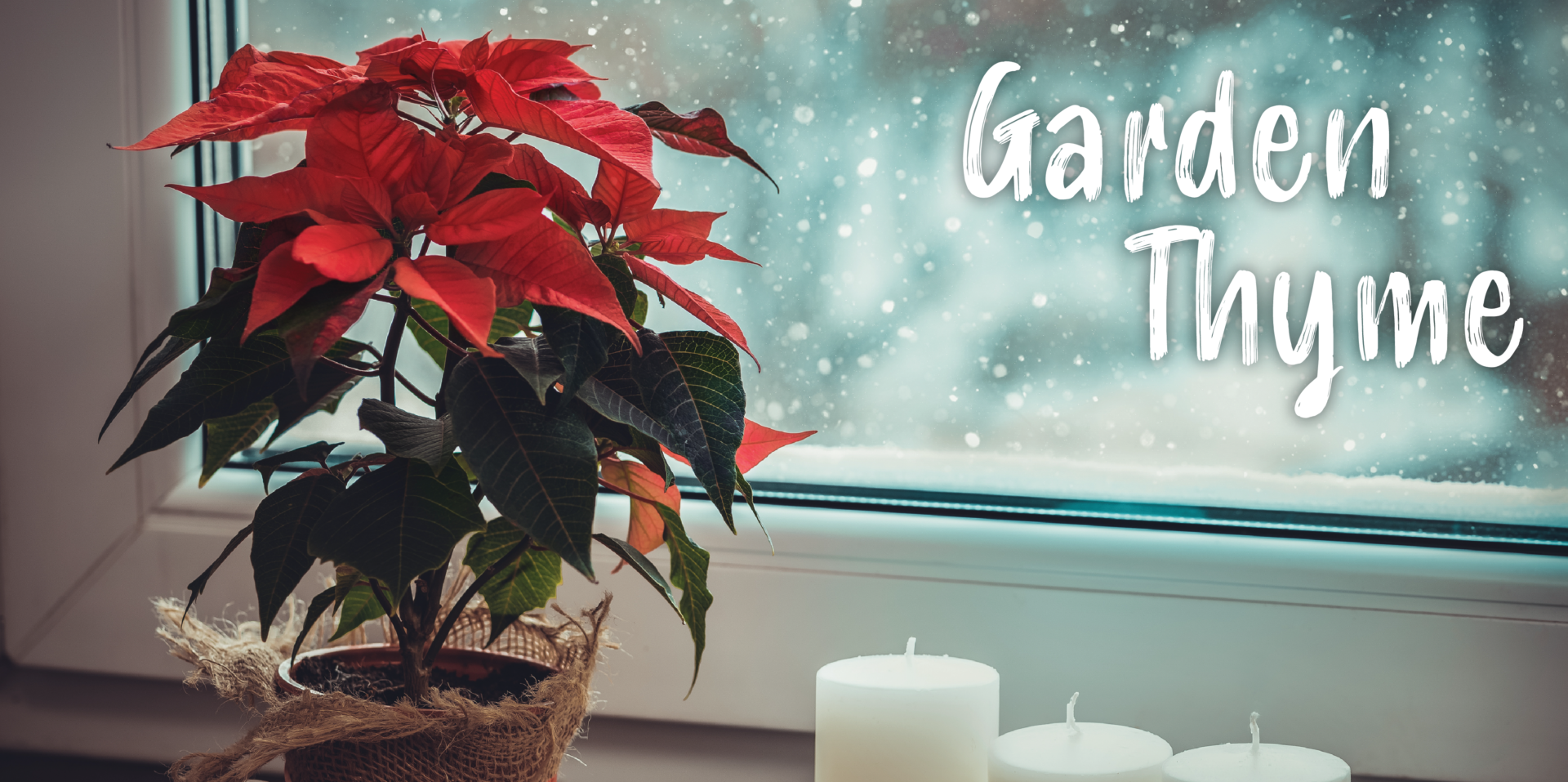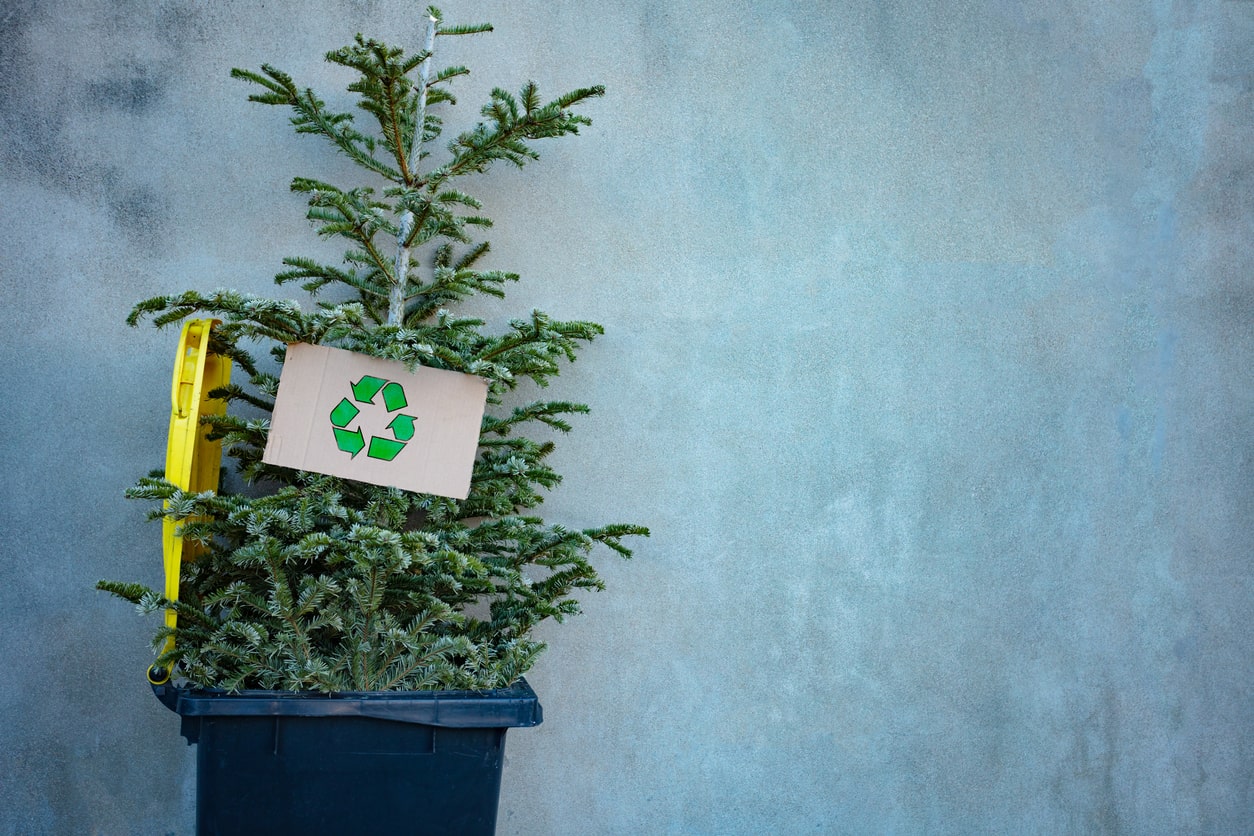5 Important Tips for Proper Live Christmas Tree Care
It just doesn’t feel like it’s Christmas season until the Christmas tree is finally up! It seems like more Americans are switching to artificial trees each year. To each their own, but there’s just something extra special about a real Christmas tree: the fragrance, the feel, the personality, the life it brings, and, yes, even the imperfection. Maybe you would prefer a real tree and you’ve tried to keep one in your home before. But due to unfamiliarity with the basics of proper live Christmas tree care, it turned out disappointing. Or maybe you’ve never had a real one because the thought of the process seems too daunting.
But not to worry! We are here to help. Proper live Christmas tree care that keeps your tree lasting anywhere from 2 to 5 weeks is really quite simple. And the process of choosing your perfect Christmas tree and caring for it is a fun experience for the whole family and so much more satisfying than the artificial alternative.
So don’t worry if you’ve tried caring for a real Christmas tree before and it didn’t turn out so well. As Linus says in A Charlie Brown Christmas, “I never thought it was such a bad little tree. It’s not bad at all, really. Maybe it just needs a little love.” Maybe your live Christmas tree just needs a little love, too.
Here are 5 Important tips for proper live Christmas tree care:
1. Choosing a quality, healthy tree
2. Bringing your tree home
3. Setting up your tree
4. Watering your tree
5. Recycling your tree
1. Choosing a quality, healthy tree
Proper live Christmas tree care begins with choosing a quality, healthy tree.
Christmas tree varieties
There are several varieties of trees that are generally considered to be best to use as Christmas trees based on characteristics such as needle retention and quality, fragrance, shape, limb strength, and color.
If you are unfamiliar with these varieties, check out this article from The Spruce that details a comprehensive selection of the most popular varieties (including Fraser Fir, Balsam Fir, and Scotch Pine) at length to help you choose which type of tree will be best suited for your situation and family’s needs.
Measure your space
Before you set out to choose a tree, make sure you measure the space in your home!
You need to know the size (height and width) of tree your home can accommodate to avoid “overbuying”. Measure the ceiling height and width of space in the area of the room where the tree will be displayed.
Keep in mind that most trees on tree farms are trimmed to an 80% taper. This means a tree that is 10ft tall will be 8ft wide at its base.
Don’t skip this step or you’ll end up like “Buddy the Elf”!
Sourcing your tree
A Christmas tree will only be as fresh and healthy as the place you source it from.
Some retail lots receive several shipments of trees throughout the season so their inventory stays relatively fresh. However, many do not. So you need to ask the retailer when their trees were cut to make sure you’re not getting a tree that’s already been dying for a couple of weeks.
But, hands down, the best way to ensure you’re getting the freshest (and therefore longest-lasting) tree possible is to cut it yourself at a “choose and cut farm”. And it’s a fun experience for the whole family!
Signs of a healthy tree
After you know which type of tree you’re looking for, have a good size estimate, and are at a quality retail lot or tree farm, now it’s time to choose a healthy tree.
Try to find a tree displayed in a shady location out of the sunlight. Look for a healthy, green tree with the least amount of brown needles.
Run a couple of branches through your hands. Make sure the needles don’t come off easily and very few fall off. Try bending some of the outer branches to make sure they are pliable. If they are brittle and break easily, the tree is too dry.
If you are in doubt about the freshness of a tree, pick a different one. And if the freshness of all the trees on the lot is questionable, go to a different lot.
2. Bringing your tree home
Now that you’ve picked a healthy, quality tree, the next important tip for proper live Christmas tree care is to bring it home safely.
If you are cutting the tree down yourself, naturally there will be a fresh cut on the trunk. But if you are selecting a pre-cut tree from a retail lot, make sure the retailer makes a clean, straight cut at the base of the trunk. This aids in water absorption by cutting away any dried-up resin and sap that has built up at the cut end that might block the tree from absorbing water.
A 2019 survey from AAA found that approximately 20 million Americans who purchased a live Christmas tree did not secure it properly on the way home. To safely and properly transport your live Christmas tree, first make sure it is wrapped in netting. When placing the tree on the roof rack on top of a vehicle or in the bed of a pickup truck, always point the trunk towards the front of the vehicle. When tying it down, secure the tree at the top, center, and bottom to prevent any side-to-side or front-to-back movement. Give the tree a “tug test” before you leave to make sure it’s secure. And be sure to drive slowly and easily on the way home, taking back roads when possible.
3. Setting up your tree
After you get your tree home, the next step for proper live Christmas tree care is to set it up correctly.
First of all, if you’re not ready to set it up right away, store your tree in a sheltered, unheated area such as a garage to protect it from the wind and direct sunlight until you’re ready to bring it indoors. Place the trunk of the tree in a bucket of water so it stays hydrated and to keep sap from drying over the cut end, which would inhibit water absorption.
If you have not already done so, clear a space in your home where you will display your tree. When deciding on the perfect spot, be sure to choose a space that is away from any major sources of heat, such as a fireplace, heater, heat vents, candles, or direct sunlight. As picturesque as the Christmas tree would be next to the fireplace, your tree will dry out much faster when exposed to that much direct heat, not to mention being a fire hazard.
Use decorative lights such as miniature lights that produce low heat to reduce drying of the tree. And make sure to always turn off the lights when leaving the house or going to bed.
Make sure you own a sturdy Christmas tree stand that will hold at least a gallon of water. When you have your space ready to set up your tree, bring the tree indoors and place it in the stand. Tighten the bolts of the stand to the trunk and fill the base with water.
4. Watering your tree
One of the most important tips for proper live Christmas tree care is to make sure your tree always has water.
Dehydration is the foremost enemy of Christmas tree longevity. A tree that dries out too quickly might not even make it to Christmas!
You need to check the stand daily to make sure the water level does not go below the base of the tree. Too little water can cause resin to form at the base and inhibit water absorption. A good rule of thumb to follow is to fill the stand with one quart of water for every inch of the tree trunk’s diameter.
Keeping the temperature down in the room that the tree is displayed can also aid in slowing the drying process.
You’ve probably heard a few “old wive’s tales” about supplementing the water with additives such as aspirin, vinegar, bleach, Sprite, corn syrup, sugar, etc. But this is probably unnecessary. Most experts agree that plenty of clean water is all you need to keep a tree fresh.
5. Recycling your tree
Proper live Christmas tree care doesn’t end when the lights are unplugged for the last time and the last ornament is safely snuggled and packed away in its box until next year. A very important part of caring for your live Christmas tree includes how you dispose of it after the holidays are over.
There are several options for proper Christmas tree recycling:
- Curb-side recycling pickup: Many trash disposal providers have regular schedules to pick up trees the 2 weeks following Christmas.
- Drop-off recycling center: Most counties have free drop-off locations, accepting up to 2 trees at no charge.
- Tree recycling/mulching: These programs will chip and shred your tree to make the resulting mulch available to use in your garden.
- Nonprofit pickup: Some nonprofit organizations, such as the Boy Scouts, will come to pick up your tree by appointment.
- Fish feeders: When sunk into private fish ponds, old Christmas trees make great refuges and feeding areas for fish.
- Community uses: Some counties and communities can find uses for old Christmas trees such as paths for hiking trails and soil erosion barriers.
Conclusion
Nothing beats the fragrance and character a real Christmas tree brings to your home over the holidays. Hopefully, with these simple tips for proper live Christmas tree care, your tree will last well through the holidays, giving you memories for years to come.
Love this content and want more? Read more about home and gardening tips here. And be sure to subscribe to our newsletter at Dock Line Magazine so you don’t miss out on getting more free content like this straight to your email!






